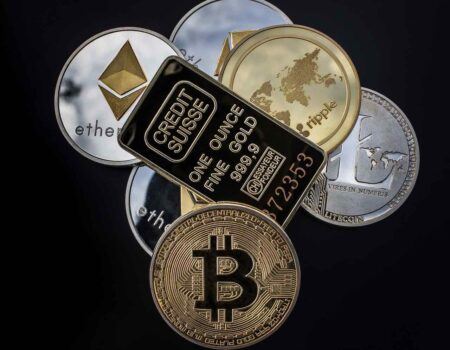ConsenSys, a Brooklyn, New York-based organization that builds, consults, and deploys decentralized applications using Ethereum, has revealed that 78% of firms use open-source software. However, the OpenSSL Software Foundation, which develops transport protocols for establishing secure connections between clients and servers, “operates on a budget of less than $2,000 in donations” and less than $1 million of revenue from contract work each year.
Web 3.0 Development Will Mostly Be Open-Sourced, But “Not Free”
As confirmed by ConsenSys, open-source projects like OpenSSL Software and also open-source blockchain and crypto-related initiatives are, for the most part, operating on relatively low budgets due to lack of adequate funding.
Although the management at ConsenSys believes Web 3.0, an evolving set of protocols and standards for the new internet, will be created mainly through open-source development projects, it also noted that the world wide web of the future will not be developed “for free.”
On May 11, 2019, Ethereum co-founders Vitalik Buterin and Joseph Lubin announced they had donated 1,000 ether (each) to Moloch DAO, an initiative aimed at acquiring funding for the ongoing development of Ethereum’s open-source ecosystem.
“Cryptoassets Are A Hedge Against Irresponsibility”
According to ConsenSys’ developers, the “systems of the future will be antifragile.” Commenting on the fragility of Bitcoin (BTC) and other cryptocurrencies, Travis Kling, the Founder and Chief Investment Officer at Ikigai Asset Management, has said:
[Cryptoassets] are a hedge against irresponsibility from governments and central bankers…the world is waking up to the value of a hedge against quantitative easing.
Zero-Knowledge Proof Tech Could Solve Ethereum’s “Privacy Paradox”
ZCash’s zk-SNARKS technology, based on zero-knowledge proofs, may solve Ethereum’s “privacy paradox.” As noted in ConsenSys’ blog post, zero-knowledge proof technology could help address the “challenge of reconciling the blockchain’s transparency (for validating transactions) with the need for data privacy and confidential transactions.”
Back in September of 2018, Buterin said zk-SNARKS could be added to Ethereum to help the smart contract platform scale to handle around 500 transactions per second (TPS).
Decentralized Finance (DeFi) Is “The Leading Narrative”
As mentioned in ConsenSys’ post, decentralized finance (DeFi) is “one of the most resounding narratives” in the cryptoasset industry. Indeed, there are currently over half a billion dollars locked into contracts issued by leading DeFi protocols including MakerDAO, Compound, Dharma, Uniswap, and Bancor.
DeFi’s main value proposition is allowing investors to access relatively large liquidity pools in a decentralized, or peer-to-peer (P2P), manner – without requiring a trusted third-party.
Regulators Continue To “Join The Conversation”
According to ConsenSys, the blockchain industry has seen increased involvement from regulatory authorities throughout the world. Notably, US Representative Tom Emmer has recommended a bill, referred to as Safe Harbor for Taxpayers with Forked Assets.
Emmer’s bill suggests that the US Internal Revenue Service (IRS) not penalize taxpayers who have not reported capital gains made on forked cryptocurrencies – until the IRS provides clear regulatory guidelines for such digital assets.
Enterprise Blockchain Projects Leading Business Innovation
Another emerging trend, in the crypto ecosystem, is the recent launch of a large number of projects aimed at enterprise blockchain development. Tech giant Microsoft, for example, released a software development kit for blockchain development for the public Ethereum network and Quorum.
Learn how to deploy an Ethereum blockchain using the AWS Blockchain Templates, deploy a smart contract, & build a serverless analytics pipeline for that contract based around AWS Lambda, Amazon Kinesis, and Amazon Athena. https://t.co/WU9RxCGfxV pic.twitter.com/Qyq7sQy6s2
— Amazon Web Services (@awscloud) October 11, 2018
Tokenization Will Help Create “Enormous Value”
As cryptocurrency fundraising models move increasingly towards security token offerings (STOs), ConsenSys’ team believes the blockchain ecosystem is “bridging open-source technology with regulated capital.” According to ConsenSys, this may be a “positive step” which may also help in bringing more transparency to the traditional financial sector.
ConsenSys’ blog stated:
The next wave of financial products, such as derivatives and equity and debt securities, will be the method in which blockchain finally moves beyond payment settlement.
The blog post further noted:
Tokenization as a whole presents blue ocean markets that will create enormous value that will continue to drive the ecosystem forward. Blue ocean markets are new, uncontested market spaces that result in a positive sum game, as opposed to highly competitive red ocean markets that are often zero-sum (someone has to lose for others to win).









